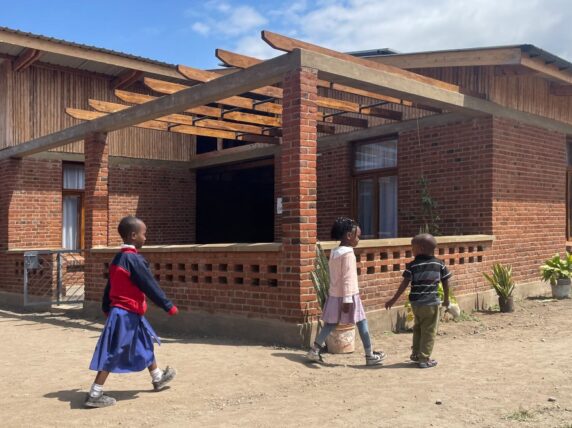The UK gets an ‘easy ride’ from the OECD-DAC
One of the main ways that donor governments such as the UK are currently held accountable for their action on aid and development is through the OECD’s Development Assistance Committee (DAC).
However, the most recent OECD-DAC review of the UK’s performance illustrates the problems with donors essentially marking their own homework, which reinforces calls for radically reforming this body and creating a more accountable aid system.
The OECD-DAC’s main mechanism for reviewing the aid and development efforts of its members is it’s ‘Peer Review’ process. These Peer Reviews are traditionally undertaken every 4-6 years and involve the OECD-DAC Secretariat, working with a group of peer governments of the OECD member being reviewed, to undertake a detailed assessments of its aid and development policies, practices and systems.
The last Peer Review of the UK was undertaken in late 2019 and early 2020, and it was published in November 2020. This report lauded the maintenance of an official development assistance (ODA) budget of 0.7% of gross national income (GNI), the poverty focus of this budget and the knowledge, evidence and global value-added of the then Department for International Development (DFID). It also set out ten recommendations for how the UK could strengthen its aid and development work.
However, since the Peer Review, the foundations for much of its praise for the UK have collapsed. At the height of the COVID-19 pandemic, in September 2020, DFID and the Foreign and Commonwealth Office (FCO) were merged to form the Foreign Commonwealth and Development Office (FCDO), which is reported to have led to declines in development focus, departmental capacity and aid transparency.
Then in November 2020 the government announced that the UK aid budget would be reduced to 0.5% of GNI from 2021, until ‘fiscal conditions allow’ for a return to 0.7% (currently not expected before 2027/28). The government has also been using this reduced ODA budget to fund a significant increase in spending on refugees in the UK, with £4.3 billion, or 28% of total UK ODA, used for this purpose in 2023.
As per its standard practice, in late 2023 the OECD-DAC undertook a mid-term review of the UK’s performance in addressing the recommendations from the 2020 Peer Review. Bond members welcomed the opportunity to formally meet with the OECD-DAC team as a part of this process. We were therefore eager to hear how the OECD-DAC had judged the UK’s performance since 2020.
This mid term review was published on 4 March, and it concluded that “the UK ha{s} made good progress on two of the ten recommendations made in the 2020 peer review and some progress against a further six”. Although these conclusions are far from wholly positive, a review of the evidence underpinning them suggests a great deal of generosity on the part of the OECD-DAC.
The conclusion of ‘good progress’ on enabling risk-based management of development cooperation (recommendation 8) is based on the introduction of new relevant policies. But there isn’t an indication that these are yet to feed into action, especially when development capability has declined.
The conclusion of ‘some progress’ on promoting policy coherence for development across government (recommendation 3) fails to acknowledge new restrictive legislation on asylum seekers, which is incompatible with international law, reversals in some policies covering the reduction of the UK’s greenhouse gas emissions and a failure to control arms sales to Israel which are contributing to the conflict in Gaza.
And the conclusion of ‘some progress’ on enabling oversight and accountability for the whole-of-government contribution to international development (recommendation 5) failed to identify any new institutional measure to support oversight of policies beyond ODA.
It is also hard not to conclude that the OECD-DAC struggles to effectively challenge its members when its recommendations have been fundamentally undermined.
The first recommendation in the original review was that the UK should retain the 0.7% commitment and the line of sight between ODA spending and poverty. The mid-term review judges that there has been ‘limited progress’ on this recommendation when it is clear there has been a dramatic decline in performance, with the 0.7% target being dropped and almost 30% of spending diverted to the UK.
Language matters, and the OECD-DAC must unambiguously call out members for such damaging actions, especially when they happen at a time of extreme global need.
It seems clear that the OECD-DAC has ‘pulled its punches’ in assessing the UK’s aid and development performance since 2020. Although important changes have been made over the last year and half – with new Ministerial and Permanent Secretary posts on development, an additional £2.5 billion in ODA for 2022/23 and 2023/24 to support refugee related spend and the publication of the White Paper – the overall trend is of dramatic decline, with action to reverse it largely still to be delivered.
This brings into further question a system of OECD members effectively holding each other accountable for their actions on development. To address these concerns, a first step must involve giving the OECD-DAC Secretariat more powers to challenge its members and allowing partner countries a central role in the institution’s work, including on Peer Reviews. We shared these views with the OECD-DAC Chair Carsten Staur at a roundtable he held with Bond members on a visit to the UK last month, and we hope the DAC will take them on board.
However, in the long run, given the past resistance of OECD members to such reforms (see Jon Lomøy’s overview of failed efforts to open up the OECD’s governance) and the fact it will always be a donor club, new, more independent, open and participatory processes for holding OECD members to account on development need to be found.
Category
News & ViewsThemes
UK aid



